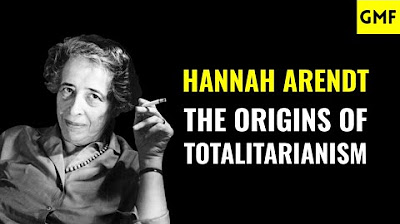PR Report #1 The Sovereign Individual::Chapter 1 - The Transition Of The Year 2000
Summary
TLDRThe video discusses 'The Sovereign Individual', a book published in 1997 that foresaw the rise of individual power in the information age at the expense of nation-states. It explores how technological advancements, particularly the internet, alter the 'logic of violence' and lead to the emergence of a cyber economy characterized by untaxable, private transactions. The authors predict a future where cyber currencies like Bitcoin could challenge fiat money, and nation-states struggle with declining tax revenues and a loss of monopoly on violence. The video connects these predictions to current events, showing their ongoing relevance.
Takeaways
- 📚 The book 'The Sovereign Individual' discusses the rise of individuals in the information age at the expense of nation-states.
- 🌐 It was published in 1997, but its themes remain relevant today, highlighting the enduring impact of its predictions.
- 🏛️ The authors argue that the internet age, or the 'new revolution of power,' is altering the 'logic of violence' that nation-states traditionally controlled.
- 💡 They introduce 'megapolitics,' a framework involving topology, climate, microbes, and technology to understand global changes.
- 💻 Microprocessors are seen as catalysts for a cyber economy characterized by being untaxable, encryptable, private, transcending locality, and reducing physical threats.
- 💼 The rise of the gig economy reflects the shift from long-term jobs to more task-based, ephemeral employment.
- 💰 The authors foresee the emergence of cyber currencies as a path to monetary independence, preempting the rise of Bitcoin and its ilk.
- 🌎 Technological advancements empower individuals and smaller groups, challenging the nation-state's monopoly on power and violence.
- 📉 As individuals gain more autonomy, nation-states may face declining tax revenues and reduced ability to provide services, leading to more reliance on private markets.
- 🛡️ In response to losing power, nation-states might resort to measures like printing more currency, seizing property, or restricting access to technology.
- 🌉 The transition from the industrial to the information age is a significant shift in economic life and social organization, with profound implications for individuals and society.
Q & A
What is the main theme of the book 'The Sovereign Individual'?
-The main theme of the book 'The Sovereign Individual' is the new revolution of power that is liberating individuals at the expense of the 20th-century nation-state, driven by the transition to the information age.
What does the term 'logic of violence' refer to as discussed in the book?
-The term 'logic of violence' refers to how violence is organized and controlled, which has typically been dominated by nation-states for the last few centuries.
What is meant by 'mega politics' in the context of the book?
-In the book, 'mega politics' refers to the hidden factors that alter the boundaries where power is exercised, with four branches: topology, climate, microbes, and technology.
How does the book describe the characteristics of the cyber economy?
-The book describes the cyber economy as being untaxable, encryptable and private, transcending locality, lacking physical threats, less prone to violence, and having long-term jobs replaced by more ephemeral task-based employment.
What is the significance of microprocessors according to the book?
-Microprocessors are seen as paving the way for the emergence of a cyber economy, which is the online economy as we know it today.
How does the book predict the rise of cyber currencies?
-The book predicts that individuals will use cyber currencies to declare their monetary independence, and that cyber money controlled by private markets will supersede fiat money issued by governments.
What does the book suggest will be the impact of the information age on individuals?
-The book suggests that the information age will lead to increased income opportunities, greater wealth accumulation, individual autonomy, monetary independence via cyber currencies, increased self-reliance, and more choices through private markets.
How does the book propose that nation-states will react to the loss of power and control?
-The book suggests that nation-states may react by unchecked printing of fiat currencies, seizing property, violating human rights, censoring speech and information, restricting access to technology, and sabotaging or blocking emerging technologies.
What historical context does the book provide for the transition to the information age?
-The book provides historical context by discussing the stages of economic life and social organization, from hunter-gatherer to agricultural, industrial, and finally the information age, with the transition from the industrial age to the information age marked by the end of the millennium.
What are some of the predictions about the year 2000 mentioned in the book?
-The book mentions various predictions about the year 2000, including Isaac Newton's claim that the world would end then, Nostradamus's prediction of the third antichrist, Carl Jung's claim of a new age birth, and Dr. Edward Yardini's warning of widespread disruption due to Y2K.
Outlines

Этот раздел доступен только подписчикам платных тарифов. Пожалуйста, перейдите на платный тариф для доступа.
Перейти на платный тарифMindmap

Этот раздел доступен только подписчикам платных тарифов. Пожалуйста, перейдите на платный тариф для доступа.
Перейти на платный тарифKeywords

Этот раздел доступен только подписчикам платных тарифов. Пожалуйста, перейдите на платный тариф для доступа.
Перейти на платный тарифHighlights

Этот раздел доступен только подписчикам платных тарифов. Пожалуйста, перейдите на платный тариф для доступа.
Перейти на платный тарифTranscripts

Этот раздел доступен только подписчикам платных тарифов. Пожалуйста, перейдите на платный тариф для доступа.
Перейти на платный тариф5.0 / 5 (0 votes)






